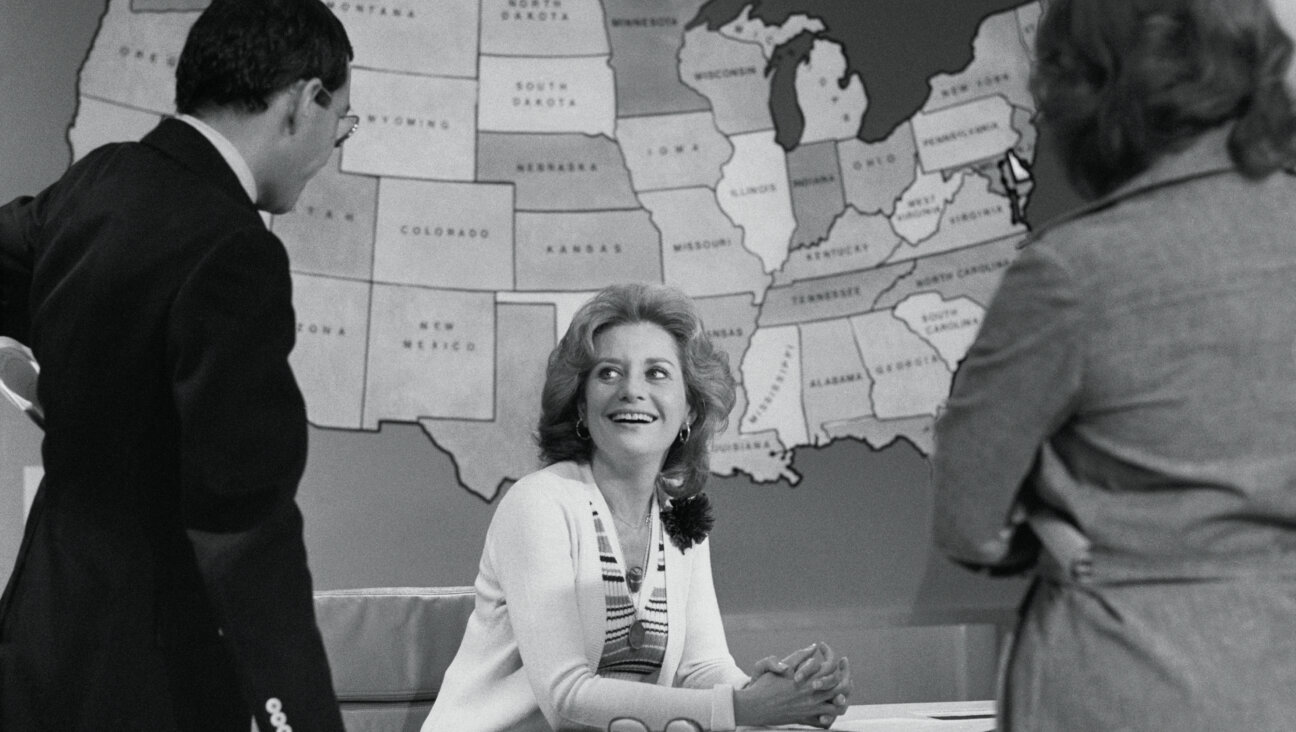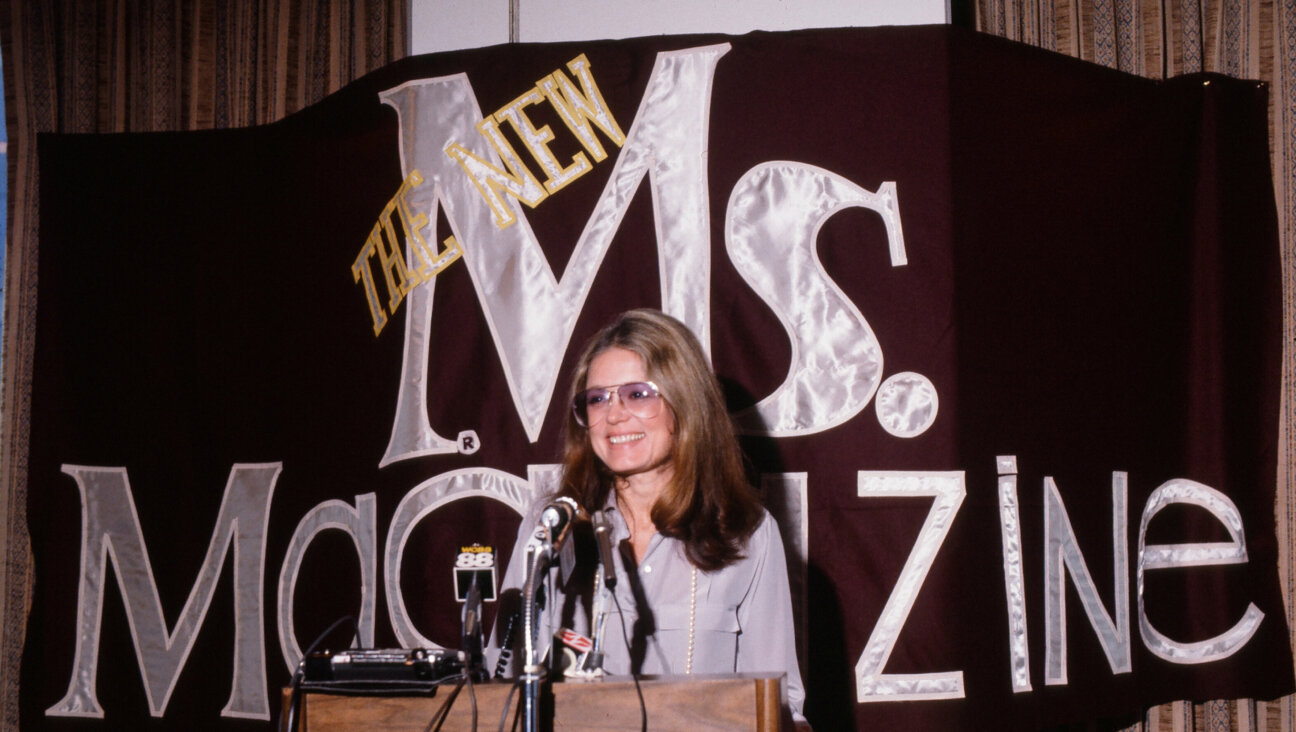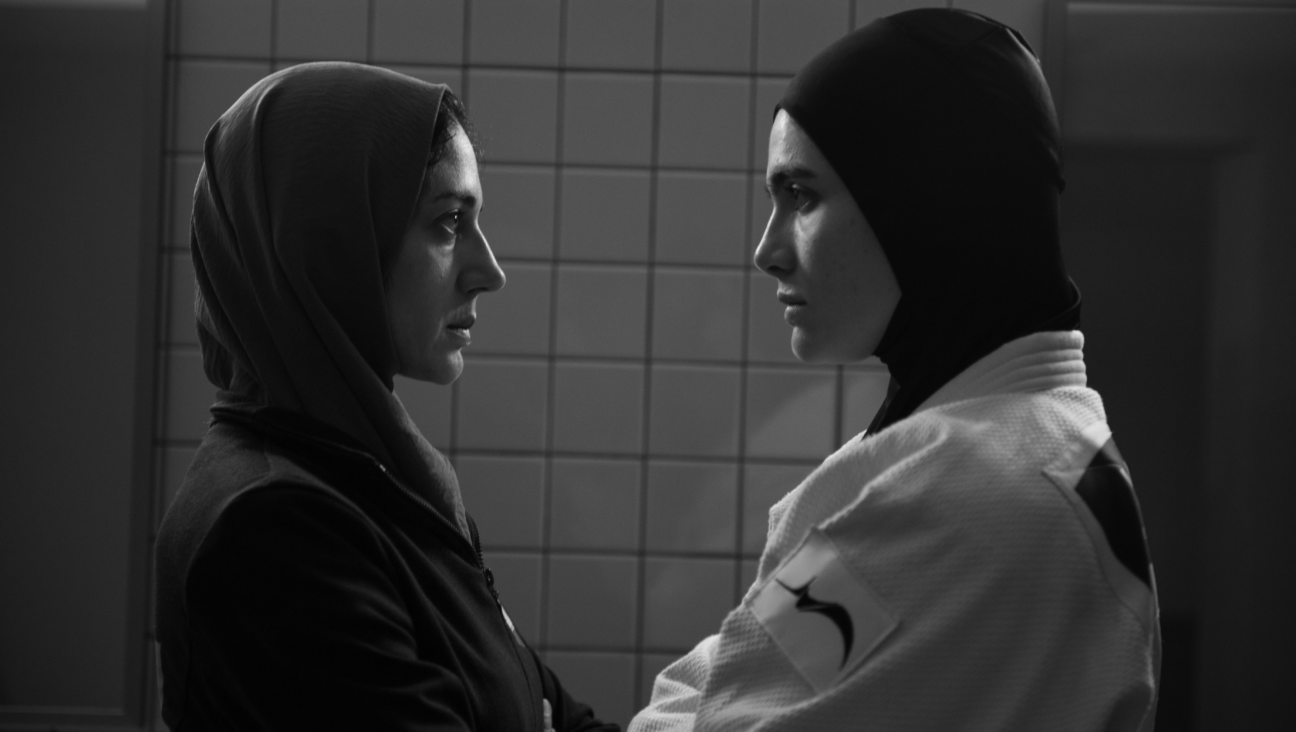Why Heschel’s example was the exception, not the rule

Graphic by Angelie Zaslavsky
Far too often, Rabbi Abraham Joshua Heschel is used to justify an attitude he never held: complacency.
Whenever there is a civil rights anniversary or friction in white Jewish and Black relations, Heschel, a leading rabbinical luminary in the mid-century, is the go-to stand-in for the entire Jewish community. His march through Selma with Martin Luther King, where the rabbi said his “legs were praying,” was somehow millipedal, carrying much more than his own two feet. You’d think he walked for all Jews past and present and was proof enough that the community was on the right side of history.
But as his daughter, Susannah Heschel, the Eli Black professor of Jewish Studies at Dartmouth College, said recently on a Zoom panel for the Forward, Heschel went by himself to Selma. In many ways, he was not the rule, but the firebrand exception, challenging the establishment and cementing his rightful place as a tzadik. A new film, “Spiritual Audacity,” now available to stream and airing on PBS for May’s Jewish History Month, outlines how Heschel’s interest in the prophets informed a theology of social justice that challenged Jews, and America as a whole, to end the scourge of racism and the quagmire of the Vietnam War.
The film takes its title from Heschel’s telegram to President John F. Kennedy, urging action on behalf of Black Americans. It’s a typical example of Heschel’s method, taking his cue from the biblical prophets’ abrasive challenge to both kings and Israelites. Cornel West calls Heschel “the real thing when it comes to prophetic witness.”
There’s little to dispel that notion in the film, which has a hagiographic sheen, complete with ebullient baritone voice-over from director Martin Doblmeier and a near constant swell of violins. But the prophetic thread proves useful in packing the arc of Heschel’s life into a compact hour. Doblmeier, a prolific director for public television, begins with the obvious crescendo, Heschel’s walk with King across the Edmund Pettus Bridge, before exploring the rabbi’s family background in Poland and his journey as a refugee to the United States.
Shaped by Hasidic tradition, tragedy and a philosophy that people and God are partners in repairing the world, Heschel is depicted as singular in his vision. There is a mention of him and a delegation of other rabbis arriving in Alabama, only for local rabbis to tell them to leave town, lest they make life difficult for Birmingham’s Jews. We don’t learn who else was in that delegation.
But then, Heschel was often an outlier. He was an odd mystic out at the Jewish Theological Seminary. He was the first non-Christian to cross the street from JTS to join the faculty of the Union Theological Seminary. He had a deep friendship with Dr. King. He was a visible rabbi, who went on TV, with his dense Slavic accent and billy goat beard, to preach how “in a free society, some are guilty, but all are responsible.”
Heschel, we learn, was a pivotal force in uniting Christians and Jews, and the man who approached the Pope to revise language on converting Jews in the Nostra aetate, the text that opened up Catholic-Jewish relations.
One senses there were other Jews involved in this important work — Marc Tanenbaum is one who is mentioned in passing — but Heschel is presented as a locus. That’s fair. It is Heschel’s movie, after all, and there’s a reason he is elevated in shuls and day schools (though, as scholar Marc Dollinger has noted Heschel is often invoked at the expense of Black and Jewish civil rights leaders).
But while this presentation borders on hero worship — former U.S. Ambassador to the U.N. Andrew Young said on the occasion of Selma, Heschel “was the prophet” — it’s in many ways a welcome approach.
In Doblmeier’s telling, Heschel can’t be mistaken for a proxy for the Jewish people of his time, but must be accepted on his own extraordinary terms. He may get too much credit here, but it’s preferable to the more dangerous misunderstanding of the power, stability and numbers of the vaunted Black-Jewish coalition.
By showing the ways in which Heschel was unique, inspired by prophetic mission and outspoken to a fault, he’s presented an ideal to reach for, not an absolving example in an ongoing fight against racist structures from which white Jews benefit. The film doesn’t bring up America’s contemporary racial reckoning, but it sends a signal nonetheless. We are not off the hook because of Heschel’s actions — far from it.
In explaining our obligation to God and humanity, Heschel would often say “something is asked of us.” It was not just throat clearing. He meant it, and it holds true today.
PJ Grisar is the Forward’s culture reporter. He can be reached at [email protected].
























